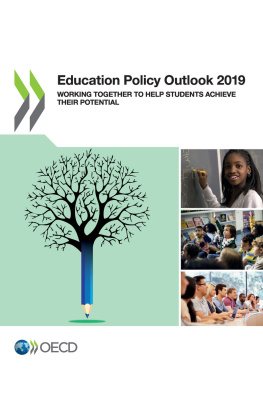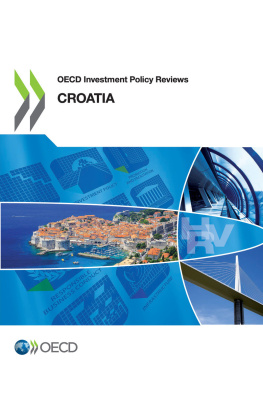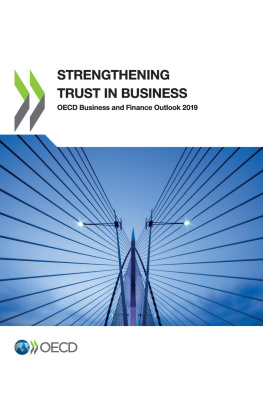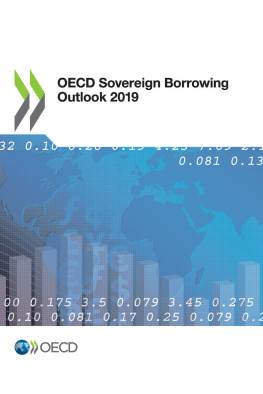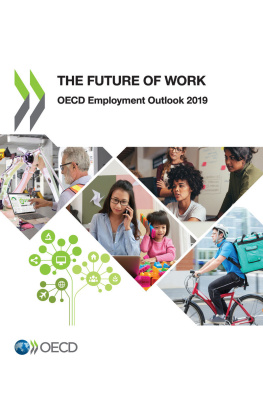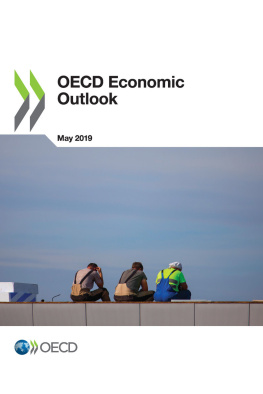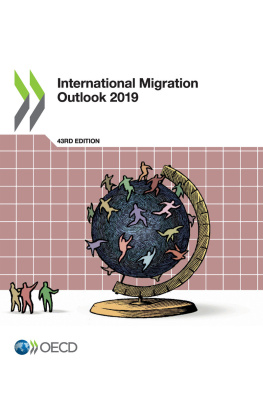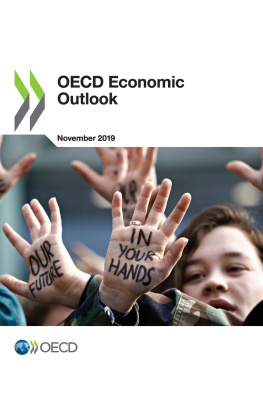OECD - Education Policy Outlook 2019
Here you can read online OECD - Education Policy Outlook 2019 full text of the book (entire story) in english for free. Download pdf and epub, get meaning, cover and reviews about this ebook. year: 2019, publisher: OECD Publishing, genre: Politics. Description of the work, (preface) as well as reviews are available. Best literature library LitArk.com created for fans of good reading and offers a wide selection of genres:
Romance novel
Science fiction
Adventure
Detective
Science
History
Home and family
Prose
Art
Politics
Computer
Non-fiction
Religion
Business
Children
Humor
Choose a favorite category and find really read worthwhile books. Enjoy immersion in the world of imagination, feel the emotions of the characters or learn something new for yourself, make an fascinating discovery.
Education Policy Outlook 2019: summary, description and annotation
We offer to read an annotation, description, summary or preface (depends on what the author of the book "Education Policy Outlook 2019" wrote himself). If you haven't found the necessary information about the book — write in the comments, we will try to find it.
OECD: author's other books
Who wrote Education Policy Outlook 2019? Find out the surname, the name of the author of the book and a list of all author's works by series.
Education Policy Outlook 2019 — read online for free the complete book (whole text) full work
Below is the text of the book, divided by pages. System saving the place of the last page read, allows you to conveniently read the book "Education Policy Outlook 2019" online for free, without having to search again every time where you left off. Put a bookmark, and you can go to the page where you finished reading at any time.
Font size:
Interval:
Bookmark:
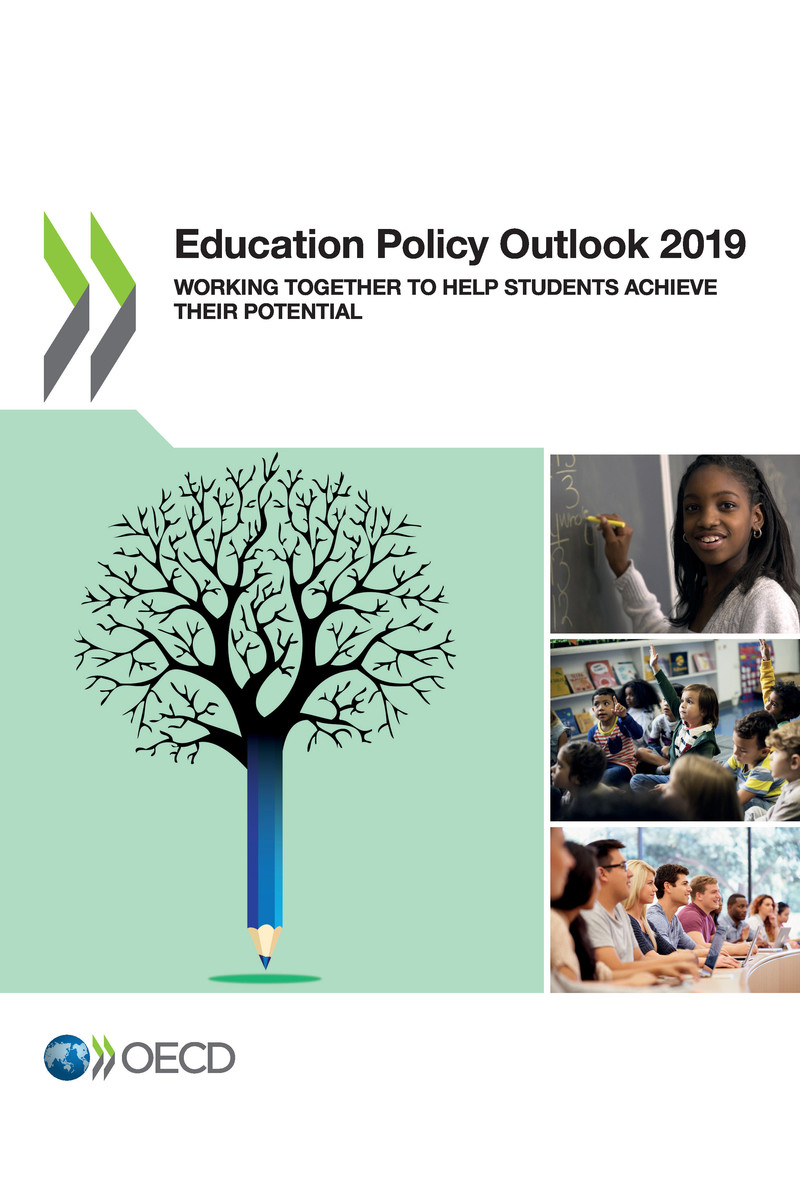
OECD (2019), Education Policy Outlook 2019: Working Together to Help Students Achieve their Potential , OECD Publishing, Paris, https://doi.org/10.1787/2b8ad56e-en .
It is so much easier to educate students for our past, than for their future. As parents, we feel anxious when our children learn things we do not understand, or when they no longer study things that were so important for us. Teachers are more comfortable to teach how they were taught, than how they were taught to teach. Furthermore, politicians can lose an election over education issues, but can rarely win one, because it takes so much more than an election cycle to translate good intentions into better results. But improving education is not simply a question of putting more money into it; big budgets do not always translate into quality education.
By analysing the policy efforts of 43 countries over the last decade, the 2019 edition of our Education Policy Outlook gives policy makers some sense of what is being done where and with what success. Indeed, knowledge is only as valuable as our capacity to act on it.
One of the key messages of this report is that policy needs to shift toward inspiring and enabling innovation, and to identifying and sharing best practice, and that shift in policy needs to build on trust: Trust in education, in educational institutions, in schools and teachers, and in students. At a time when command and control systems are weakening, building trust is the most promising way to advance and fuel modern education systems.
Also critical is equity. Perhaps the most impressive outcome of world-class education systems is that they deliver high-quality education across the entire system so that every student benefits from excellent learning. Achieving greater equity in education is not only a social-justice imperative, it is also a way to use resources more efficiently, and to increase the supply of knowledge and skills that fuel economic growth and promote social cohesion. Careful evaluation is needed at each stage of the funding process and systems need to build capacity for foresight to help education systems anticipate the future.
Another message of this report is around policy coherence. On the one hand, people are concerned about a growing gap between what societies expect from schools and actual learning outcomes. On the other hand, teachers complain about a too-rapid pace of education reform that leaves little time or space for thoughtful implementation. Behind the perceptions that reform is happening both too slowly and too fast is a lack of direction and alignment between policies and the components of reform. So there is a great need for consistency and continuity when an education system is trying to improve.
Last but not least, educational leaders need to look not just forward but also outwards. And that is not about copying and pasting solutions from other places; it is about looking seriously and dispassionately at good practice in our own countries and elsewhere to understand what works in which contexts. The ones that progress are those that are open to the world and ready to learn from and with the worlds education leaders.

Andreas Schleicher
Special Advisor on Education Policy to the Secretary-General
Director for Education and Skills
OECD
The Education Policy Outlook is a collaborative effort between OECD countries and economies and the OECD Secretariat, invited institutions, as well as all of the actors working within participating education systems to help students achieve their potential.
It was prepared by the Education Policy Outlook team (Diana Toledo Figueroa [Project Leader], Daniel Salinas [on stage during the initial drafting of this report], Christa Rawkins, Marie Ullmann and Jonathan Wright), under the responsibility of Paulo Santiago, Head of the Policy Advice and Implementation Division, and Andreas Schleicher, Special Advisor on Education Policy to the OECD Secretary-General, and Director for Education and Skills. Rex Kaplan, Shiana Crosby and Niklas Olausson contributed analytically as part of the Outlook team during different stages of this report. Cassandra Davis, Rachel Linden, Henri Pearson, Sophie Limoges, Alison Burke, Amar Toor and Eric Magnusson provided communications assistance, and Julie Harris edited the report.
Sincere thanks are due to the many contributors who helped shape the objectives of the work of the OECD Education Policy Outlook during 2017-18, and who participated in the final validation process for this report during the first half of 2019. Members of the OECD Education Policy Committee and the national co-ordinators provided guidance and comments throughout the process (see Annex D for the full list of contributors).
This report also benefited from invited contributions by the Implementing Education Policies team (Beatriz Pont, Romane Viennet, Pierre Goudard and Marco Kools), who prepared Chapter 6 of this report, as well as by the Trade Union Advisory Committee to the OECD (John Bangs and Martin Henry), who prepared Chapter 7 of this report. This report also complements the analysis of the preceding Education Policy Outlook 2018: Putting Student Learning at the Centre .
Mnika Kpe-Holmberg, Livia Ruszthy, Brigitte Devos, Alexandra Tamasan, Klaus Krner, Ulrike Pisiotis, Marina Grskovic, Sylwia Sitka and Antonio Garca Gmez of the European Commission also provided valuable input to Chapter 8. The OECD Secretariat is also grateful to the European Commission for the funding and analytical collaboration it provided for the preparation of 11 Education Policy Outlook Country Profiles from 2015 to 2017 and the update 11 Education Policy Outlook Country Profiles from 2017 to 2020.
Font size:
Interval:
Bookmark:
Similar books «Education Policy Outlook 2019»
Look at similar books to Education Policy Outlook 2019. We have selected literature similar in name and meaning in the hope of providing readers with more options to find new, interesting, not yet read works.
Discussion, reviews of the book Education Policy Outlook 2019 and just readers' own opinions. Leave your comments, write what you think about the work, its meaning or the main characters. Specify what exactly you liked and what you didn't like, and why you think so.

